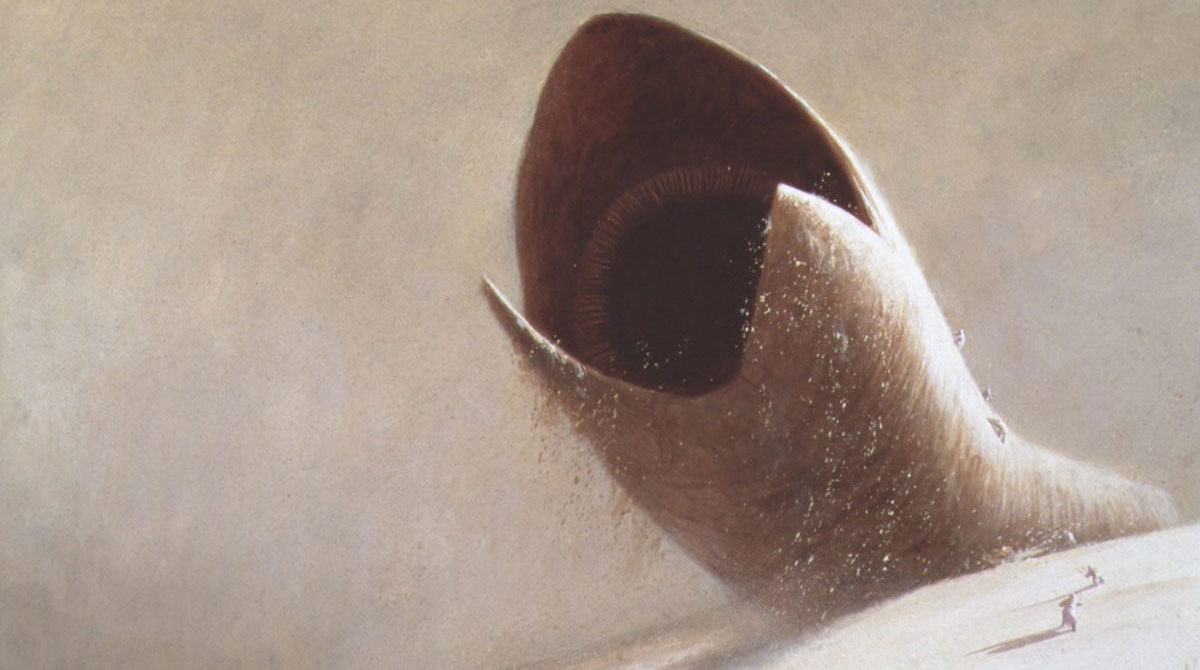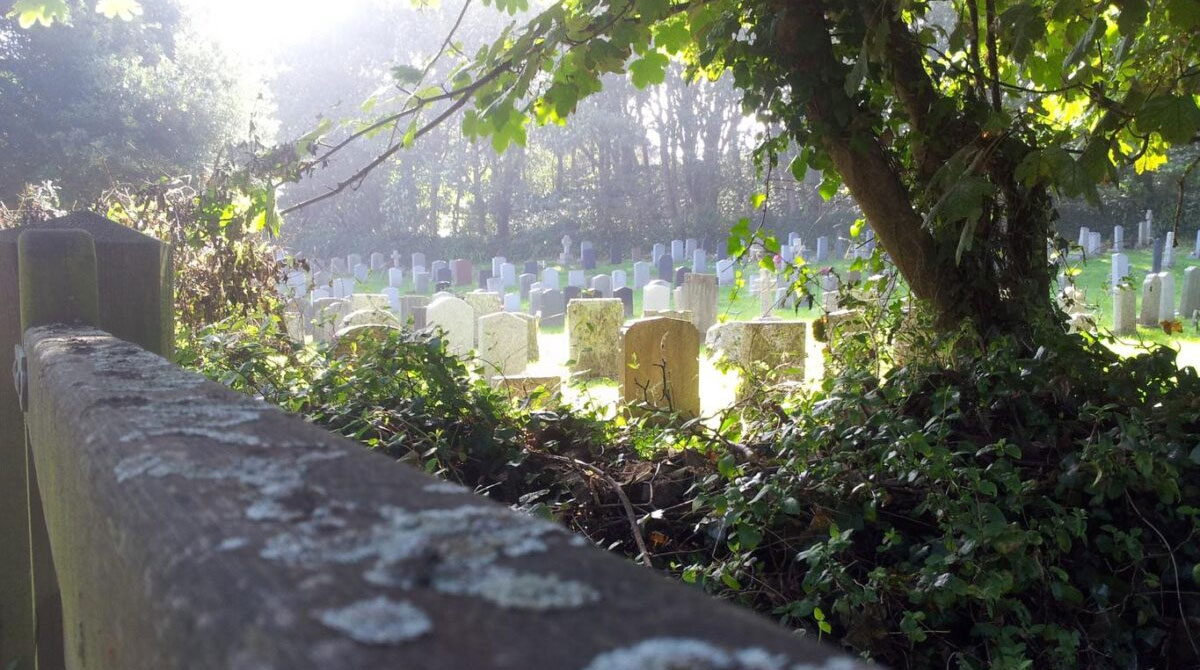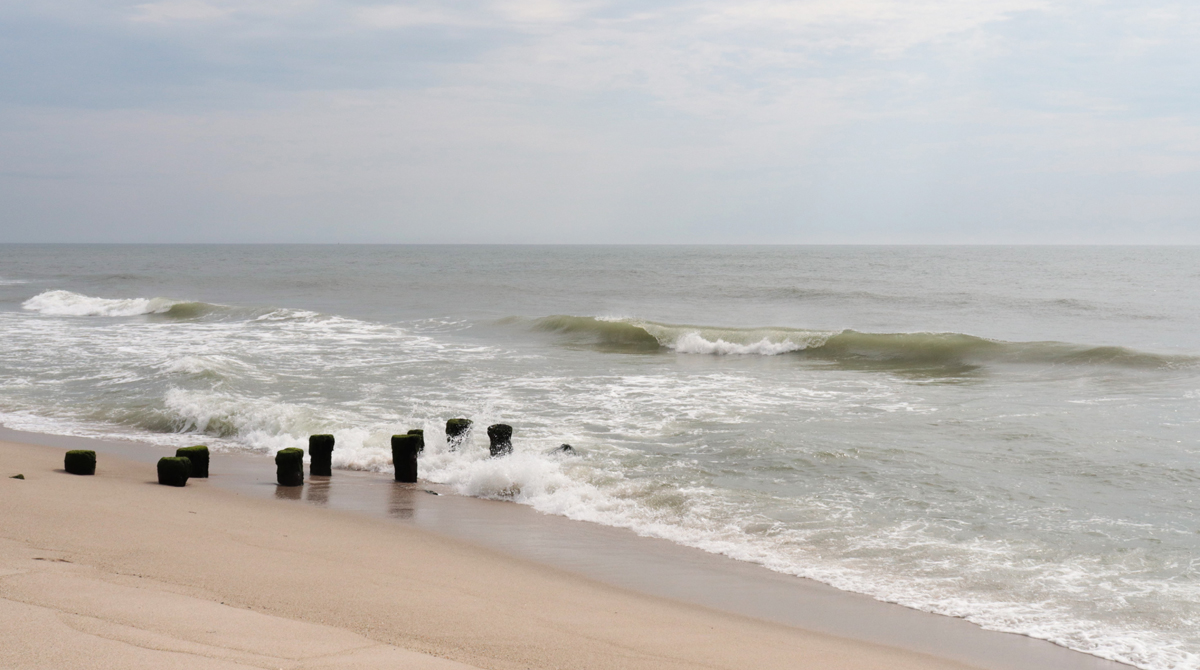1999 Interview with Brian Herbert & Kevin J. Anderson
Way back before the turn of the century (which is an extremely fun phrase to write) I and aspiring author, Justin Rickard, decided to start an independent, self-published magazine. It was called The Pythagorean. It was a melding of sorts of philosophy, spirituality, and science. Our goal was to show how these things were not at odds with one another but enhanced and strengthened each other – how they worked in harmony to expand our minds, feed our souls, and ultimately come to fruition in the expression of creativity. It lasted one issue.
One of the highlights of the process of putting together the magazine was a chance encounter with Brian Herbert, eldest son of Frank Herbert, and Kevin J. Anderson while they were on tour to promote the resurrection of the Dune series. And, unbelievably, they agreed to sit down with a couple of young guys to discuss their new book Dune: House Atreides, the impact of the Dune series, terra-forming, and intergalactic law.
The interview was conducted in the Tattered Cover Bookstore in Denver, Colorado on October 19, 1999. It has been reprinted in its entirety below.
The Pythagorean: We have read in your afterward, the story about how you came to collaborate with each other on Dune: House Atreides. What were the advantages of working together and what challenges were posed while learning the minds of three different authors?
Brian Herbert (BH): Frank had such big shoes to fill that Kevin likes to say that it takes two of us. Kevin will stand firmly in one shoe and I will stand in the other one. But seriously, Dune was written by a writing team. Frank Herbert wrote all the books with my mother. She was his advisor and editor. The prose and the passages added were all my Dad’s. My mother, Beverly, would recommend the arrangement of the passages and what he should emphasize. Frank Herbert would not have been Frank Herbert without Beverly Herbert. And there are parts of Frank Herbert in Kevin and me.
Kevin Anderson (KA): I think Frank Herbert was my invisible literary mentor. I knew that when I read all of Frank Herbert’s books, even the obscure out-of-print paperbacks. I learned all the details of plotting and characters from him. Frank was the first person I read who described second and third-order consequences of somebody’s actions, rather than Garg the Barbarian does and this and that happens.
Plus Frank had economic, political, philosophical, and environmental ideas that were very subtle. Consequences of consequences of consequences. All this really made me as a young reader understand that the universe is this big interconnected tapestry rather than just one thing.
To get back to the advantages of collaborating, Dune is a vast project. Brian has incredible strengths in philosophy, religion, and deeper background subjects a Dune novel requires. Some of my strengths are in plotting and action scenes and the storytelling part of it. So, between the two of us, we wrote a novel that neither of us could have done individually.
BH: I also spent five years writing a biography of my father and in that, I researched the origins of Dune and I connected all of his writings together. And I spent another year doing a concordance of all six Dune books so we know by page number where the Bene Gesserits are described, where the Mentats are described. We know exactly in Frank’s words how he put it together, so we can match and tie it all together.
Pythag: Is the biography in print?
BH: My agent has waited for this first novel, Dune: House Atreides, to come out before trying to sell the book. It is called Dreamer of Dune. It is a massive undertaking to understand somebody as complex as Frank Herbert and I didn’t always understand him. I came to understand him more by writing a biography and by writing these books, I am coming to understand him more.
KA: Dreamer of Dune is one of the most amazing biographies I have ever read. Because it’s not just a biography of a person’s life, it’s a biography of a person growing up in the shadow of this monumental man. We have a web page called: dunenovels.com and we put two excerpts of Brian’s biography up there and hope to put a couple more. There is a TV mini-series in production of the original Dune. Six hours that will air on the Sci-Fi Channel and it starts filming next month in Prague. All of this and our novel is a long-awaited Dune resurgence. It’s about time.
BH: Kevin and I are Dune fans ourselves and we want to see where the story continues even if we had to write it ourselves.
Pythag: Why is it that the Dune books are so easy to start over again?
BH: The Dune books are to be read over and over by design. I think I should add that F.M. Busby, or Buzz Busby, a well-known science fiction writer, had said to my father that when he finishes reading Dune he then turns back to page one and begins reading again. Dad said that was the way he wrote it. What dad meant was that the reader comes spinning out of the novel with all kinds of pieces clinging to him or her. But also Dune is written on layers and multi-levels. The most familiar is the adventure story of Paul Atreides and below that is the ecological message. Then the political message, then the religious message, then the poetry and science of setting up a world. You can read it on any one of those levels, so that’s why you may want to read it again and look for things that intrigue you.
KA: When I read Dune as a ten-year-old I got the adventure story. Giant sandworms! What more do you want? But when I reread it as a college person I thought about the politics and economics. Frank wrote a great story and put all of this insidious stuff in there that even ten-year-olds were getting subconsciously. Because no matter how profound your ideas are you have to get people to read them. And you don’t get people to read them by being pedantic. Frank was able to put the philosophy in there as well as tell an amazing story.
BH: It is challenging enough for a writer to slip one or two important messages into an adventure, but in Frank’s case, as he put it, a potful of messages in there. Let me explain just a few of the messages. Ecology is the understanding of consequences. You may want to check the exact quote on that. When politics and religion ride in the same cart there are problems, I don’t have the exact quote on that either. He was warning us to keep politics and religion separate. He was warning us in politics not to trust leaders because leaders lie. Frank doesn’t believe in a religion that claims that there is one and only one path to God. That’s in the appendix.
KA: One of the whole appendices talks about how the “Orange Catholic Bible” was written, and in fact, we might even tell that story in one future novel, about this huge convention that was brought together and took years. There were assassinations of the members and all this stuff trying to come up with the, and I hesitate to quote this word, generic scripture so that all the faiths could at least get something out of it. The thing that caused the greatest bloodshed and suffering was all of these religious fanatics with a narrow view. There was only one way, rather than thinking if God really cared what the way was He would have made it clear to all of us. Since it is clear to nobody there must be different ways.
Pythag: It was a great vision by Frank Herbert that humanity would exist ten thousand years from now. What kind of faith do you have in humanity’s future? Are we meant to populate the known universe?
KA: Being a technophile my degree was in physics and astronomy. I have always been a big advocate of a space program and exploring other planets because it’s there. It’s the pieces of the universe that we can’t see up close. I also think that it is truly our destiny to not stay home in our little neighborhood. I think that we need to go off to other places, to set up colonies if only for the simplistic survival reason that if an asteroid hits the Earth I don’t want everything to go away. I don’t want us to have all of our eggs in one basket, to use a cliché. I would like for humanity to spread out to other places.
Unfortunately, I also believe the way technology is going and the way human beings are, I suspect that if we did spread out to other stars, other planets, and environments, that in ten thousand years we would not look like humans at all. One of the great messages of Dune is that you have to be adaptable if you are going to survive. And if you are going to be adaptable we are not going to look like we do now here in Denver. You have to look like whatever the environment demands you look like.
If you live in a low gravity world you’ll end up being tall and spindly with a very light bone structure. In a high gravity world, you’d be short and squatty with very thick bones and strong muscles. Also, I think that our technology and our genetics are strong enough that we could make people fit into that environment much faster.
I recall that Frank does mention in later Dune books where ten thousand years have passed, that people have adapted to different things and they no longer like the human being of another time.
Pythag: We could in fact colonize a planet or moon in the near future. What would be your opinion on terra-forming?
KA: I would like to see something like that happen. It would be nice to keep Mars a pristine environment or the moon a pristine environment. But, I believe that should be secondary to whether you can make it into a secondary home for mankind. I know that is being “human-centric” but is an airless toxic wasteland. I don’t understand what could be gained by protecting the moon’s original environment. I would rather see a colony of people living on the moon and adapting it.
Now, the politics and ethics of it become a little less clear. Back in 1940s science fiction, if we show up on a planet where there are already jungles and already have life forms we decide we are going to wipe them out and put our own in. That I don’t agree with. But I don’t think there is anything on Mars that is going to get up in arms and write protest signs if we start terra-forming.
BH: Well, he’s talking about “the” future and dad was talking about “a” future. There are so many things that could turn and change the future. As far as terra-forming goes, I’m afraid we are going to go into their worlds and cause a lot of damage. And we tend to wait until there is an extreme situation, an extreme crisis before we correct the pendulum. Even regarding technology, I think that technology tends to make us quite overconfident. We really haven’t changed our nature and we still make these huge mistakes.
KA: That’s one of the things Frank, his entire message of the last three Dune books, with Leto II, the God-Emperor, the Scattering, and his Golden Path, was trying to make sure that humans truly did long term planning. With our governmental system where somebody gets re-elected every couple of years, we have absolutely zero long-term planning. And there are very few things that will save the Earth or fix the long-term decline that we have established by not paying attention to what we are doing with industry and technology. There are very few things you can solve within one politician’s term of office.
BH: Of course there is the air quality thing. We are trying to various governments on board. China won’t do it; various other third-world nations won’t cooperate. An example would be like that of the Titanic going down without enough lifeboats. They didn’t require lifeboats for all the people on the ship until after the disaster.
Pythag: With the advent of space colonization we would be headed toward a feudal system. For example, one that is like the Imperium in Dune. How do you foresee maintaining order?
BH: I think what might be best is a benevolent dictator and a feudal system might be good too. I have some problems with many aspects of the American democracy, the jury system for example. I think that with juries we have unprofessional people making decisions about life and death. And we are making decisions based upon the impressions we receive from tricky lawyers. Very often we are being asked on television stations to vote, “Do you feel that JonBenet Ramsey’s parents did ti or did not do it?” while we don’t have the facts. People are asked to make decisions on emotional levels which really bothers me.
KA: On a more practical note if you are talking about colonization and spreading out, there is at least a two-hour transmission lag time between Mars and us. If you had interstellar colonies you would have five to ten years in between the transitions. Then if you have a sprawling galactic empire, governing such a thing with today’s technology would be impossible. It would take centuries for news to pass around.
So, I think everybody might decide to accept a certain code of law. As far as some emperor sitting on a planet and saying, “I don’t like that planet over there, go blow it up tomorrow.” It is not going to happen unless you have faster than light travel. Warp drives, hyperspace, whatever. Those are all great science fiction plot devices but they don’t seem to work in the real world at all. If we are stuck by the way physics works as we understand it now. If you have people in other colonies voting for the next president he will be dead or out of office before the votes even come in. You can’t function as a government that way.
BH: For there to be a feudal system such as we talked about you would need a kind of code of honor. There is a code of honor in Dune among the leaders of the various houses. And there is an economic connection that everyone is dependent upon mélange. So everybody has to be connected not only by the code of honor but through economics and politics as well. You have to keep it all together.
Pythag: Guildsmen, Mentats, Bene Gesserit, the Fremen, such groups exhibit superhuman abilities. Do you believe human consciousness has limits, or do you believe it will continue to evolve?
BH: I think it will continue to evolve. The Mentats are just an example of what we could attain. But it is a specialized, almost idiot savant-type mentality, although Mentats are fairly well-rounded. They give us pause to make us think that we really could achieve those things.
KA: Just look at what we are required to know now compared to what someone was required to know a century ago. There are fifth-graders in Japan that are required to know more information than I had when I graduated from college. I actually suspect that the largest challenge is not going to be the capabilities of our consciousness but the capabilities of human civilization to educate newer people.
As we learn more and more and expand things more and more obviously you have, as a kid, more to catch up with in order to get what the cutting edge of whatever technology is. It wasn’t hard for Newton or Galileo to be at the cutting edge of technology because they invented most of it. For me as a person living at the end of the 20th century, to learn enough about what is known in physics or to get the edge to see what else there was to push it to would require almost all my life of studying to go just one step beyond.
BH: I think it is the creative potential, the ability to come up with new things, is where our hope is. I hope that we do not become a race of people that just memorize things. There needs to be a combination of the two, memorization and creativity.
KA: Even with expanding technology, and science fiction has done this before, you can stretch this to extremes and make it look ugly. But I would love for there to be some type of implant chip so that I could suddenly speak Spanish. I’m finding that I rely a lot on my CD-ROM encyclopedias because it’s almost like my brain is that much bigger because the information is so instantly at hand.
BH: As long as we increase our thought patterns and our brains don’t atrophy because of these instantaneous technologies, then I think we’ll be fine.
Pythag: Recalling the Butlerian Jihad we were wondering if computers are an enhancement to our lives or can they have the ability to be detrimental?
KA: There is obviously one giant story of the Butlerian Jihad and the huge saga of how humans had overthrown the thinking machines and found their ways to do the same things that computers did only with human capabilities.
BH: There is also a Bene Gesserit axiom, “What does it mean to be human?”
KA: Also, Brian and I are thinking differently now than what Frank was thinking in the 1950s and 60s. Back then it was much more the boogieman in the closet, of the giant computer that had vacuum tube and blinking lights taking over the world. There aren’t a whole lot of people that think that way now because of the way that computers are so involved in everything.
We really run into a problem as far as if you have very sophisticated computers who seem to be creative, maybe even creative. Think of a computer that starts trying to think up its own poetry. Then turn around and you see human beings. There are a lot of human beings who just have no ambition. They seem to want to work on the assembly line and put things in and that’s all they care about and then they go home and watch TV, go to bed and get up and go back to work on the assembly line.
BH: Some writers would like computers to write stories for them.
KA: But if you look at the two extremes, if you have a super-intelligent computer that really wants to be creative and wants to be human and you have a physical person who has no ambitions and punches the cookie-cutter all day long, you tell me which one is closer to humanity and which one is closer to being a machine.
BH: Don’t give away our story! (Laughter)
KA: I think when Frank came up with it, it was a very clear-cut thing that these are thinking machines, they are bad and we are human beings. But if you blur the lines a lot more it becomes a much more challenging question of do you save humans just they happen to be flesh and blood, born in an organic way or machines. As you can see it’s not a clear-cut answer. I think it asks many questions that Brian and I will discuss long into the night.
Pythag: What is the “spice” a metaphor in today’s society?
BH: Well on one level it’s the oil beneath the sands of Saudi Arabia and other desert countries. But on another level, going back to mythological readings, the sandworm is the dragon guarding the treasure. The treasure is mélange. Dad liked to have these old mythological themes resurrected. In fact, Ezra Pound said, “Make it new,” and I think that was one of the things Dad was thinking about when he came up with the sandworms and the spice. I think the mélange is also a metaphor for what can be. It is a geriatric drug, but it also has a dark side. It is what we desire and what we better be careful to avoid.
KA: And how so much dependence on a single substance is really dangerous. In fact, our very first opening quote in chapter one of Dune: House Atreides is a CHOAM economic analysis of mélange is used for many things that any fool knows that too much dependence on one thing leads to disaster.
BH: It is the glue that holds the Imperium together but it is also something that could detonate the whole thing.
Pythag: How do you actually write a whole novel that is written in the same style throughout using two writers?
BH: Even though our emphases are different in what we write, sometimes our writing styles are very close. So the writing is not that difficult to smooth out. But we are both admirers of Frank Herbert’s style and I think subconsciously we work toward that.
But we lay out our chapters in a very detailed outline. We lay out the plot and then we assign the chapters, volunteer, or make suggestions on who might do better on particular chapters. Then I write the first draft of several storylines and Kevin will write the first draft of other storylines. So we each finish about half the book on the first draft, which is very cathartic. It just pours out in about six weeks and then we spent the better part of a year editing it. Eleven drafts on House Atreides and seven or eight on House Harkonnen.
Pythag: So you are planning to more books that are set before Dune?
KA: We turned in House Harkonnen and we are plotting House Corrino now, which will finish the trilogy that we set out here. I guess it will be no surprise that we will end it with the birth of Paul Atreides. So, that’s the trilogy. We would love to tell the Butlerian Jihad story, we have the outline for Dune 7, and we have ideas for how did the Fremen come to the planet Dune and how the great schools like the Bene Gesserit, the Mentats, and the Spicing Guild formed.
BH: Look at between Dune and Dune Messiah, there are thirteen years where there was a great jihad. And plus we end our book with the birth of Paul but there are fifteen years from there to the start of Dune.
KA: Which we know Leto Atreides engaged in a terrible War of Assassins with the planet Grumman. We don’t know much about that. We really don’t want to say what we want to do next, after the trilogy. Brian and I are kinda leaning toward the Butlerian Jihad story but we have an 800-page House Corrino to plot and write first. We don’t want to get ahead of ourselves.
BH: I suppose we should mention that after less than a week on the market, Dune: House Atreides is a New York Times bestseller. It really is a Dune book, guys.
This article originally appeared on DaddyElk.com on March 9, 2013












Likhon chowdhury says:
Conor says:
Andy Garcia says: